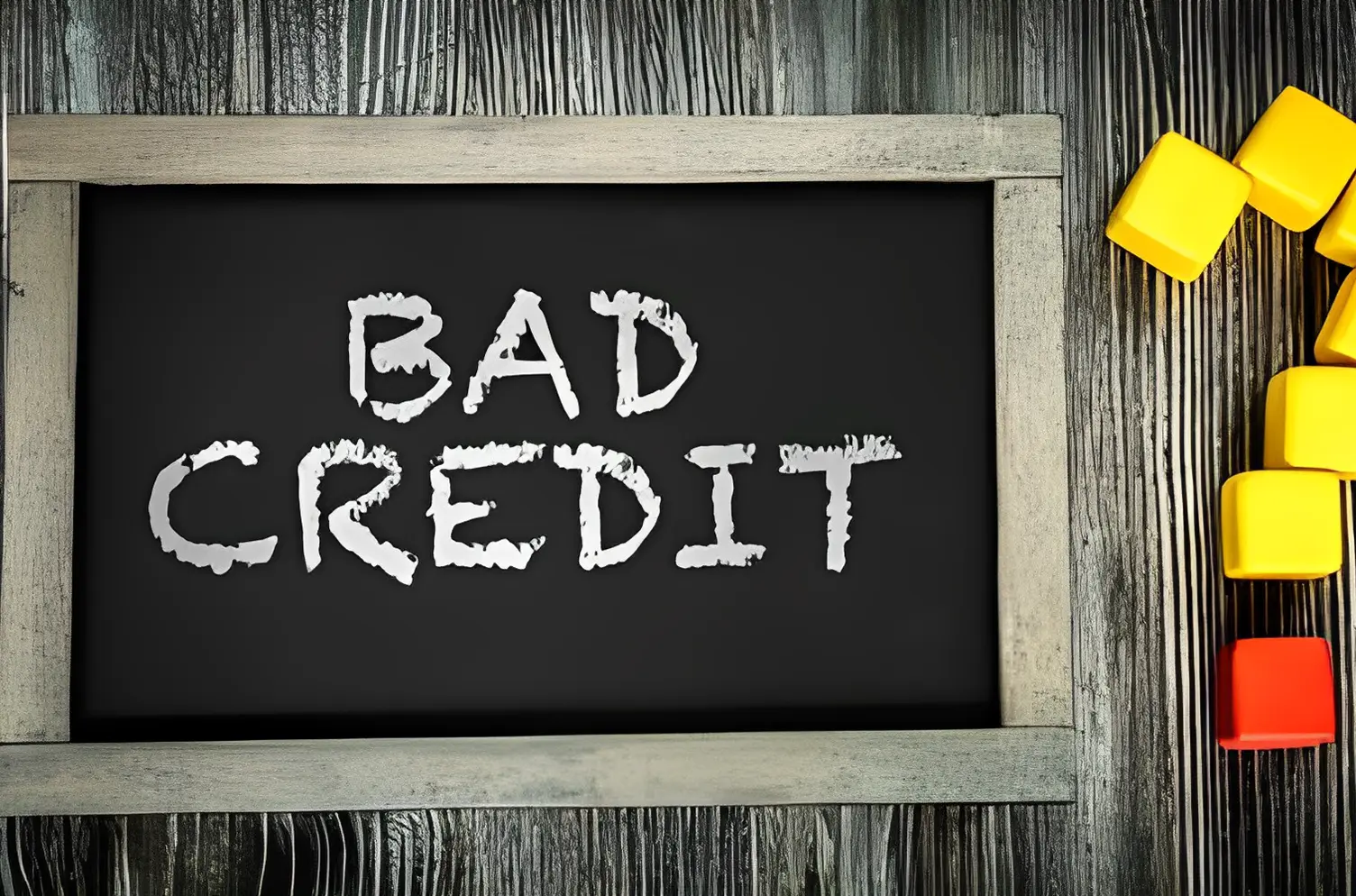Joint Mortgage Applicant Has Bad Credit

What To Do If One Applicant on a Joint Mortgage Has Bad Credit?
Getting a mortgage with a partner can be stressful if one of you has bad credit - and cause strain if that means you are finding it hard to be approved.
It is still possible to find a competitive mortgage with an independent broker who can negotiate terms on your behalf with the most suitable lender.
Here we'll explain how joint mortgages with work one bad credit applicant. If you need help comparing rates or finding a mortgage for your joint house purchase, give the mortgage brokers team a ring on 0330 304 3040.
How Does Bad Credit Impact a Joint Mortgage Application?
It depends on how serious the bad credit is. Credit issues can vary from minor problems such as a couple of late payments a few years ago to severe challenges such as having repossession on your credit file.
Bad credit lenders are often the best solution since they will assess the application on a case-by-case basis. In contrast, most high street banks will automatically refuse any applicant with bad credit.
Lenders will need to know:
- What the credit issues are, and on what accounts they happened.
- When the problems occurred, and if you have since repaid the debt.
- The values involved and the reasons behind the situation.
Other general criteria apply, so the way your mortgage application is treated will depend on whether the applicants are married if they are existing homeowners, and how much deposit they have available.
Can I Get a Joint Mortgage if One Partner has Adverse Credit?
In most cases, yes, you can. Most lenders will decide based on their lending policies. Sometimes, you might be better off getting a single applicant mortgage - but that relies on demonstrating you can keep up with the repayments on one income.
Lenders prefer for both applicants to be on the deeds and will assess both credit reports. Unfortunately, that means one perfect credit file and one bad one will still mean the same assessment level for the credit issues in question.
However, attitudes vary. Most high street banks run credit checks and have a generic scoring system you need to meet.
Specialist lenders don't usually rely on scoring but will examine the credit file's content to come to a decision.
How Does the Type of Credit Issue Impact Our Ability to Get a Joint Mortgage?
Given that it depends on what sort of credit issues you have, let's run through some of the most common to explain what that means for your joint mortgage:
- Late payments aren't usually too serious and can mean missing a payment on a mobile phone contract, for example. If the late payment is over a year ago, you will usually be able to find a joint mortgage.
- Defaults mean that you have been over one month behind on your financial obligations. Some lenders will accept this provided the default was below a specific value or happened over a certain number of years ago.
- CCJs can be more challenging, but there are still bad credit lenders who can help. A lot depends on when the CCJ was registered, how much money was involved, and if it has since been satisfied. Usually, if you have a larger deposit, you can get a mortgage after a CCJ within a year or two.
- Debt Management Plans often have terms preventing you from taking out further lending. However, you can get a mortgage before it is paid, provided you can demonstrate that your income will cover the mortgage repayments and your DMP contributions.
- IVAs usually need to have been settled for a certain number of years, although some lenders will accept mortgage applicants in a current IVA. Typically, you will need a substantial deposit and demonstrate that you have kept entirely up to date with the IVA repayments.
- Bankruptcy is more serious, and most lenders will need you to have been discharged by a minimum number of years. You can get a bad credit joint mortgage after bankruptcy but require a larger deposit if this was within a year or two.
- Repossessions are perhaps one of the most challenging situations since the lender can see you had failed to pay a mortgage before to the extent that your property was repossessed. Again, you can get a specialist bad credit mortgage, but a lot depends on when the repossession happened, why, and whether your credit file has since been in good order.
Can I Get a Joint Mortgage if We Both Have Bad Credit?
If both joint mortgage applicants have a bad credit file, the challenge is a little more significant. Lenders will assess both applicants individually, and a lot depends on whether one has a minor issue or both have severe credit problems, for example.
Lenders will look at:
- Your credit scores. These show the risk level, and mainstream lenders usually have a minimum benchmark score you need to reach to be approved.
- Credit searches to examine the detail of your credit history.
- Whether you are applying as one person or as joint applicants. Sometimes, you can get a mortgage in just one person's name, although you will need to explain why to the lender.
Can I Add my Partner with Bad Credit to my Mortgage Agreement?
Usually, yes, this isn't a huge problem. In short, you have already qualified for the mortgage and shown that you can afford the repayments. You will need to provide information about your partner if you wish to add them to your mortgage.
However, if they have serious credit issues, the lender might decline and refuse to add your partner to your mortgage agreement.
Can I Get a Mortgage with a Partner who has No Credit History?
Sometimes, people have no credit history - and usually, that means they haven't ever used credit borrowing or have recently moved to the UK.
Unfortunately, having no credit score can be as difficult as having a bad score since a lender has no information to base their lending decisions against.
In this situation, we'd recommend applying to a lender who doesn't use generic credit scoring to decide and will look at the content (or lack of) on your partner's credit file.
My Partner Has Bad Credit - Can I Leave Them Off of the Mortgage?
Usually, lenders prefer all residents living at the property to be named on the mortgage agreement. However, some will consider a sole applicant if the other has a bad credit history.
However, you need to be conscious about where the deposit is coming from - and if the partner is contributing the deposit is not on the mortgage, you will need to report this as a gifted deposit and often require them to sign a waiver.
How Does a Bankruptcy Affect a Mortgage in Two Names?
If one partner on a mortgage is declared bankrupt, it isn't likely to impact the property unless the mortgage is the default subject. You won't usually face repossession provided you keep up to date with the mortgage repayments.
The receiver will review the bankrupt person's assets and calculate the equity on their proportion of ownership in the property but do not usually touch the other joint owner's equity.
Sometimes, the receiver might order the bankruptcy party to release their share of the equity to repay some of the debt, which might mean refinancing or selling the property.
If you have equity in your home, you might be able to remortgage to raise the cash required to repay the debt and apply for bankruptcy to be annulled.
Expert Help with Bad Credit Joint Mortgages
A lot depends on what lender you apply to if you are looking for a joint mortgage and one partner has a bad credit history. The right mortgage provider depends on what sort of credit issues you have had and when.
There are nearly always options, from Credit Repair mortgages to specialist bad credit lenders - so a whole-of-market broker can help you find a solution. Contact the Revolution team at [email protected] to arrange a good time to talk.
Related Posts
Ask the Expert
Mortgage Brokers




